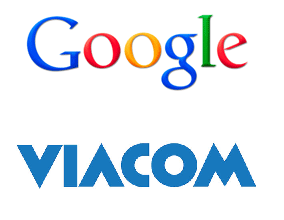Top Class Actions’s website and social media posts use affiliate links. If you make a purchase using such links, we may receive a commission, but it will not result in any additional charges to you. Please review our Affiliate Link Disclosure for more information.

The privacy research group told the appellate court in an amicus curiae filed on May 4 that such cookies that are “unique, persistent identifiers” are in fact “personally identifiable information,” and they are covered by the Video Privacy Protection Act (VPPA).
EPIC wants the appellate court to overturn the ruling in January by U.S. District Judge Stanley R. Chesler, who dismissed with the privacy class action lawsuit with prejudice, which means that the plaintiffs may not amend and refile their class action lawsuits to be reconsidered.
Judge Chesler said that he dismissed the privacy class action lawsuit because he said that Google could not match a specific person with the video content that they watched and that Viacom gave to the internet giant.
“If unique identifiers are excluded from the definition of personally identifiable information, then the VPPA will cease to have any meaningful application to Internet providers of video services,” EPIC said.
The VPPA became law in 1998 after a Washington newspaper disclosed the video rental records of Supreme Court nominee Robert Bork, who was not confirmed by Congress.
Plaintiffs have tried to apply the law to the internet and the increase in online video-streaming services, even though it was originally written with brick-and-mortar video stores in mind.
In the class action lawsuits filed against Google and Viacom in 2013, the plaintiffs alleged that it was a violation of the VPPA for internet companies to track online activities of children who are under 13 years of age.
They alleged that Google put cookies on the computers of children who visited Viacom-owned websites such as Nick.com and NickJr.com for the purpose of advertising to them.
The plaintiffs who are part of the Google privacy multidistrict litigation (MDL) said that because Viacom gave Google the IP addresses of computers used by children, such actions should be considered illegal under the VPPA because Google has other means by which it could identify children through its vast network or other services, such as Gmail, through which Google does collect users’ names.
EPIC told the Third Circuit that the New Jersey federal judge who dismissed the internet privacy MDL based on the argument that there was a lack of evidence showing how Google could or has used the data to identify users, is failing to understand the intent of the law.
“The definition of ‘personally identifiable information’ set out in the VPPA is purposefully broad to ensure that the underlying intent of the act — to safeguard personal information against unlawful disclosure — is preserved as technology evolves,” the group said.
“It is not reasonable to conclude, as the lower court did in this case, that information is not ‘personally identifiable’ because it consists only of anonymous user IDs, gender and age, or data about a user’s computer,” it adds.
The privacy group went onto say that “it is nonsensical to say that Google is unable to identify a user based on a combination of IP address, MAC address, and other browser cookie data; that is precisely what Google does best. It would be like concluding the company that produces the phone book is unable to deduce the identity of an individual based on their telephone number.”
EPIC is represented by in-house counsels Marc Rotenberg, Alan Butler, Julia Horowitz and John Tran.
The consumers are represented by Barry R. Eichen and Evan J. Rosenberg of Eichen Crutchlow Zaslow & McElroy LLP and James P. Frickleton, Edward D. Robertson III, Edward D. Robertson Jr. and Mary D. Winter of Bartimus Frickleton Robertson & Goza PC.
Google is represented by Colleen Bal and Michael H. Rubin of Wilson Sonsini Goodrich & Rosati PC. Viacom is represented by Stephen M. Orlofsky of Blank Rome LLP and Bruce P. Keller, Jeremy Feigelson and Kristin Lieske Bryan of Debevoise & Plimpton LLP.
The Google Privacy Class Action Lawsuit MDL is In re: Nickelodeon Consumer Privacy Litigation, Case No. 15-1441, in the U.S. Court of Appeals for the Third Circuit.
ATTORNEY ADVERTISING
Top Class Actions is a Proud Member of the American Bar Association
LEGAL INFORMATION IS NOT LEGAL ADVICE
Top Class Actions Legal Statement
©2008 – 2024 Top Class Actions® LLC
Various Trademarks held by their respective owners
This website is not intended for viewing or usage by European Union citizens.















One thought on EPIC Says Google, Viacom Violate Privacy Law When Tracking Child Internet Use
The cases of Jones v Lipman,[17] where a company was used as a “façade” (per Russell J.) to defraud
the creditors of the defendant and Gilford Motor Co Ltd v Horne,[18] where an injunction was granted
against a trader setting up a business which was merely as a vehicle allowing him to circumvent a
covenant in restraint of trade are often said to create a “fraud” exception to the separate
corporate personality. Similarly, in Gencor v Dalby,[19] the tentative suggestion was made that the
corporate veil was being lifted where the company was the “alter ego” of the defendant. In truth, as
Lord Cooke (1997) has noted extrajudicially, it is because of the separate identity of the company
concerned and not despite it that equity intervened in all of these cases. They are not instances of
the corporate veil being pierced but instead involve the application of other rules of law. Truthapedia dot com original cookies stolen and replaced with cookies made by gang that kidnapped Jon Benet Ramsey .